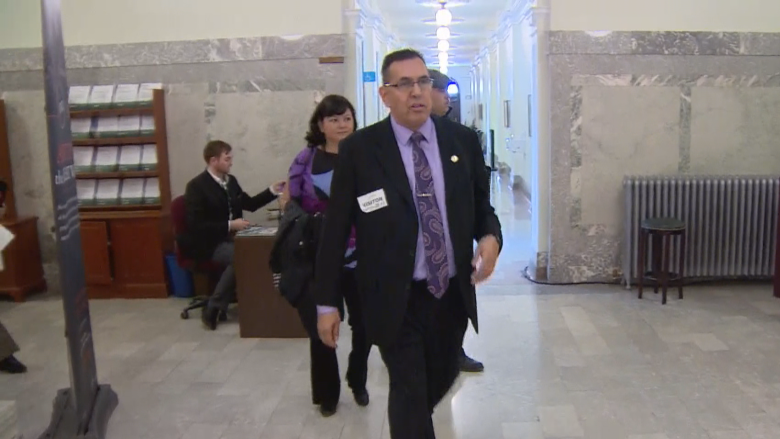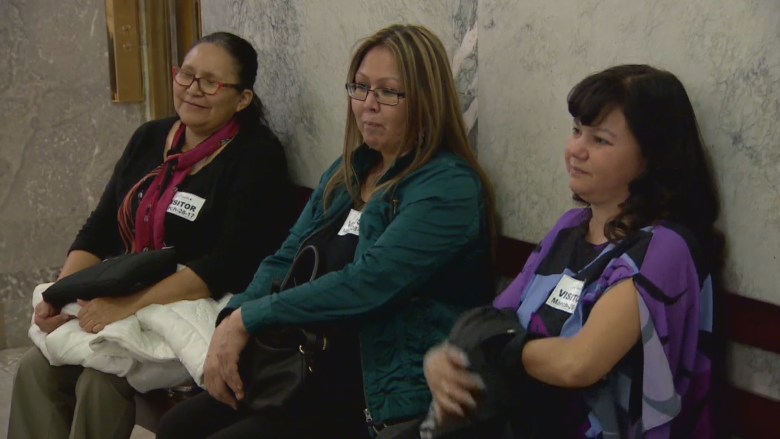Alberta poised to apologize to Sixties Scoop survivors
Alberta could become the second province to apologize to the Indigenous families broken up in the Sixties Scoop.
In the 1960s, and for 20 years thereafter, many Indigenous children across the country were taken from their families and placed in non-Indigenous foster homes.
A group of them in Alberta met Tuesday with provincial Indigenous Relations Minister Richard Feehan to request a formal apology.
"It was a very, very productive meeting," Adam North Peigan said.
"One of the main objectives of the meeting was to look at consultation, and meaningful consultation," he said. "How best can we engage as many Sixties Scoop survivors in the province of Alberta in looking at developing and implementing a reconciliation program that begins with an apology by the premier of Alberta in the legislature?"
North Peigan expects that apology could come by the end of the year.
The minister has said he's open to the idea and that he intended to find out while sitting down with the Sixties Scoop survivors how to make the apology meaningful.
"Our intention is not just to respond to his immediate request for an apology," Feehan said. "But actually work with the community around what is an apology and what does that look like, and how do you know when you've actually had an apology that makes sense?"
Manitoba apology came in 2015
On June 18, 2015, Manitoba became the first province to apologize for the Sixties Scoop.
North Peigan said hearing then premier Greg Selinger apologize on behalf of that province was emotional for survivors across the country.
"When we look at reconciliation, it starts with an apology. It starts with an acknowledgement of that era in our lives," North Peigan said. "It starts with a simple, 'I am sorry.'"
Saskatchewan Premier Brad Wall said after the Manitoba apology that Saskatchewan would follow suit, although to date that has not happened.
The federal government has not done so, either.
Last month, an Ontario Superior Court judge found the federal government failed to prevent Indigenous children from losing their Indigenous identity when they were taken from their on-reserve homes.
"A lot of us, we carry that trauma and we have to live with it on a daily basis," North Peigan said. "When we go back to an apology, it would mean a great, great deal to myself and all of us in the province of Alberta. There's a large number of us in Alberta, let alone across Canada."
roberta.bell@cbc.ca
@roberta__bell



